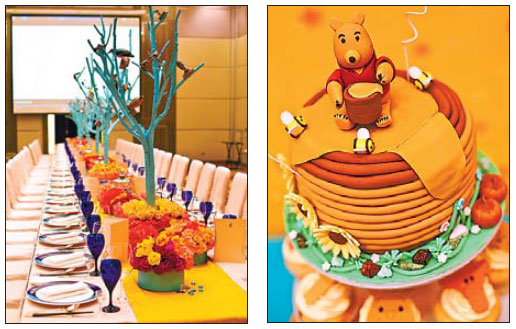Hospitality trade responds to new era of austerity
|
The Ritz Carlton Beijing Financial Street turn its eyes to dinner parties for children celebrating an early milestone such as one month or 100 days old. [Photo provided to China Daily] |
It used to be peak season around the end of year for catering and events at upscale hotels in China.
But frugality rules issued at the end of 2012 now ban government officials from misusing public funds for lavish spending in eight areas including annual dinner parties and meetings.
Hardly cause for celebration in the hospitality industry at the time, luxury hotels around the country have since figured out ways to survive the downturn, reshaping the industry with a focus on the general public and reasonable spending behavior.
According to the Chinese Tourism Green Book from 2013 to 2014 compiled by the Chinese Academy of Social Science and published by Social Science Academic Press, the austerity rules led to a range of restructuring efforts at restaurants, hotels and other parts of the tourism industry.
The authoritative report said lavish spending is expected to have faded further in 2014, bringing the market onto a more rational track to serve ordinary consumers.
A recent study on the commercial sector by the China General Chamber of Commerce supported those findings, noting the catering sector in 2014 had slight growth and became more "popular".
De Kun, deputy general manager of Kuntai Royal Hotel in Beijing, said that after the release of the eight rules on government spending, the hotel switched gears to engage ordinary consumers through an innovative program where its chefs go into the local community and teach people to cook some simple but delicate cuisine.
"The move is to let the general public know that the five-star menu is not that high up and unreachable," said De.















